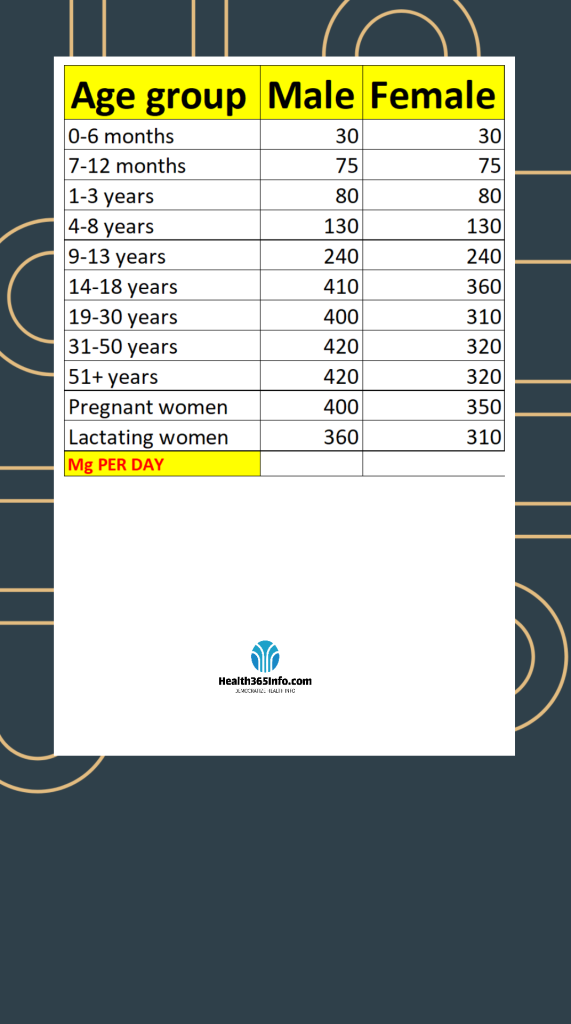
Magnesium is an essential mineral that plays a pivotal role in various bodily functions, promoting overall health and well-being. Responsible for over 300 biochemical reactions, magnesium supports muscle and nerve functions, regulates blood pressure, assists in energy production, and underpins bone health. The human body has about 25 grams of magnesium, with the majority (50-60%) stored in the skeletal system.
While a majority of individuals receive adequate magnesium from their diets, specific groups such as the elderly, athletes, and those with certain medical conditions might be at risk for deficiency. The deficiency could manifest in symptoms like muscle cramps, fatigue, headaches, and insomnia. Key dietary sources of magnesium include leafy greens, nuts, seeds, whole grains, and legumes. Beyond food, magnesium is also available in supplement form. If considering supplementation due to a perceived deficiency, it’s crucial to consult with a medical professional, especially when other underlying health conditions are present or when taking other medications.
In summary, magnesium’s significance can’t be overstated. Whether obtained from dietary sources or supplements, ensuring an adequate intake is fundamental for maintaining health and preventing potential complications.
The recommended daily allowance (RDA) for magnesium can vary based on age, sex, and specific life stages or conditions. Here are the general guidelines for magnesium intake, Dosages are based on the dietary reference intakes (DRIs) issued from the Food and Nutrition Board of the United States Government’s Office of Dietary Supplements, part of the National Institutes of Health (NIH).
Infants and Children:
0-6 months: 30 mg
7-12 months: 75 mg
1-3 years: 80 mg
4-8 years: 130 mg
9-13 years: 240 mg
Teenagers and Young Adults:
Males 14-18 years: 410 mg
Females 14-18 years: 360 mg
Adults:
Males 19-30 years: 400 mg
Males 31 years and older: 420 mg
Females 19-30 years: 310 mg
Females 31 years and older: 320 mg
Pregnancy and Lactation:
Pregnant teens (14-18 years): 400 mg
Pregnant adults (19-30 years): 350 mg
Pregnant adults (31-50 years): 360 mg
Lactating teens (14-18 years): 360 mg
Lactating adults (19-30 years): 310 mg
Lactating adults (31-50 years): 320 mg
Special Cases and Conditions:
Certain health conditions or medications might influence magnesium requirements. For example:
Chronic Alcoholism: People who suffer from alcoholism may need to consume more magnesium because it might cause a deficiency.
Gastrointestinal Disorders: Magnesium absorption can be lowered by conditions including Crohn’s disease, celiac disease, or persistent diarrhea.
Type 2 Diabetes: People with diabetes frequently have low amounts of magnesium, so they may need to consume more of it.
Older adults: They frequently have decreased absorption capacity, which can raise their risk of magnesium shortage. Some people eat less magnesium overall.
For these reasons, older adults should ensure adequate magnesium intake.
Athletes: Intense physical activity can increase magnesium requirements by 10-20%. It’s essential for athletes or those engaging in heavy physical activity to ensure they’re meeting their magnesium needs.

KEY References
Van De Walle Ms Rd, G. (2023, February 10). Magnesium Supplements: All You Need to Know. Healthline. https://www.healthline.com/nutrition/magnesium-supplements
Pros and cons of taking a magnesium supplement. (2021, August 11). Mayo Clinic. https://www.mayoclinic.org/healthy-lifestyle/nutrition-and-healthy-eating/expert-answers/magnesium-supplements/faq-20466270
Magnesium and your health. (n.d.). Health Benefits and How Much You Need | Healthdirect. https://www.healthdirect.gov.au/magnesium
LD, M. W. R. (2023, March 24). Why do we need magnesium? https://www.medicalnewstoday.com/articles/286839
Rude, R. K., Singer, F. R., & Gruber, H. E. (2009, April 1). Skeletal and Hormonal Effects of Magnesium Deficiency. Journal of the American College of Nutrition; Taylor & Francis. https://doi.org/10.1080/07315724.2009.10719764
Abbasi, B. (2012, December 1). The effect of magnesium supplementation on primary insomnia in elderly: A double-blind placebo-controlled clinical trial. PubMed Central (PMC). https://www.ncbi.nlm.nih.gov/pmc/articles/PMC3703169/
Dietary Reference Intakes for Calcium, Phosphorus, Magnesium, Vitamin D, and Fluoride. (1997, September 17). National Academies Press eBooks. https://doi.org/10.17226/5776
Magnesium. (n.d.). Mount Sinai Health System. https://www.mountsinai.org/health-library/supplement/magnesium
Zaken, S. B., Radomysky, Z., & Koren, G. (2020, September 28). Association Between Serum Magnesium Levels and Alzheimer’s Disease or Mixed Dementia Patients: A Population-Based Retrospective Controlled Study. Journal of Alzheimer’s Disease Reports; IOS Press. https://doi.org/10.3233/adr-200220
Barbagallo, M., & Dominguez, L. J. (2015, January 1). Magnesium and type 2 diabetes. World Journal of Diabetes. https://doi.org/10.4239/wjd.v6.i10.1152
Rosique-Esteban, N., Guasch-Ferré, M., Hernández-Alonso, P., & Salas-Salvadó, J. (2018, February 1). Dietary Magnesium and Cardiovascular Disease: A Review with Emphasis in Epidemiological Studies. Nutrients; Multidisciplinary Digital Publishing Institute. https://doi.org/10.3390/nu10020168
Tangvoraphonkchai, K., & Davenport, A. (2018, May 1). Magnesium and Cardiovascular Disease. Advances in Chronic Kidney Disease; Elsevier BV. https://doi.org/10.1053/j.ackd.2018.02.010
Dong, J. Y., Xun, P., He, K., & Qin, L. (2011, August 19). Magnesium Intake and Risk of Type 2 Diabetes. Diabetes Care; American Diabetes Association. https://doi.org/10.2337/dc11-0518
Orchard, T., Larson, J. C., Alghothani, N., Bout-Tabaku, S., Cauley, J. A., Chen, Z., LaCroix, A. Z., Wactawski‐Wende, J., & Jackson, R. D. (2014, February 5). Magnesium intake, bone mineral density, and fractures: results from the Women’s Health Initiative Observational Study. The American Journal of Clinical Nutrition; Elsevier BV. https://doi.org/10.3945/ajcn.113.067488
Schwalfenberg, G., & Genuis, S. J. (2017, January 1). The Importance of Magnesium in Clinical Healthcare. Scientifica; Hindawi Publishing Corporation. https://doi.org/10.1155/2017/4179326
Alawi, A. M. A., Majoni, S. W., & Falhammar, H. (2018, January 1). Magnesium and Human Health: Perspectives and Research Directions. International Journal of Endocrinology; Hindawi Publishing Corporation. https://doi.org/10.1155/2018/9041694













